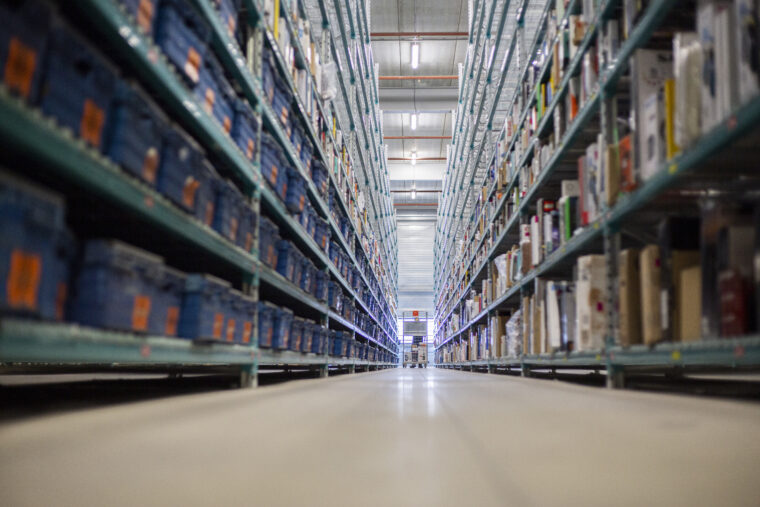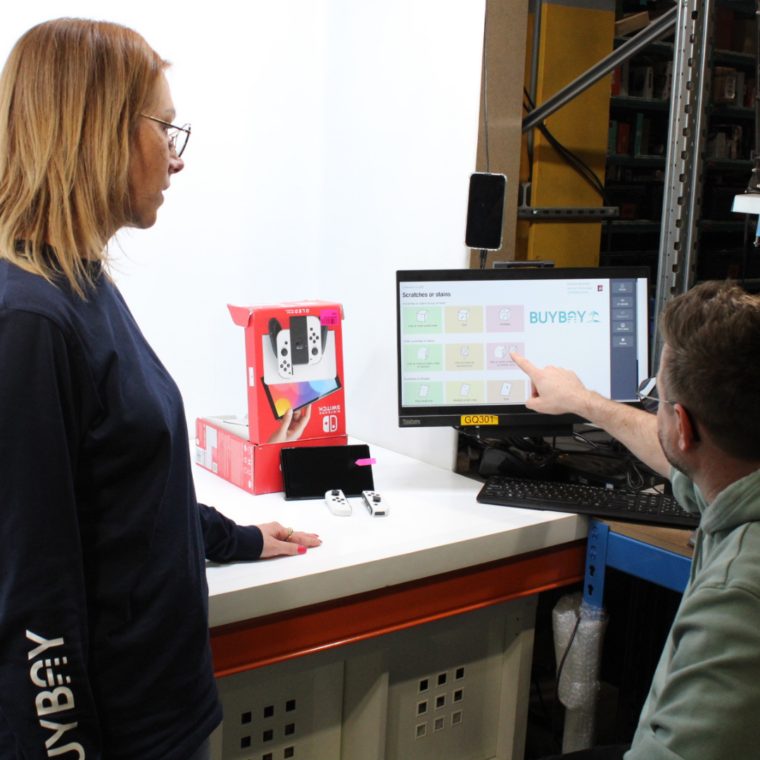
Many online retailers are struggling with a paradoxical situation.
On one hand, there are long waiting times for some goods due to a shortage of raw materials and supply chain problems. At the same time, however, many retailers’ warehouses are bursting at the seams because they ordered certain products in large quantities after the two boom years. In the first half of the year, however, there was a significant bend in the e-commerce growth curve, with the result that fewer products were sold than anticipated. Surveys by industry associations as well as studies show that rising energy costs, a general price increase, and uncertainties due to the Ukraine conflict and resulting economic developments, are significantly dampening the buying mood.
We have followed this development closely and want to show in this blog post how profitable and sustainable marketing of remaining stock, overstocks, and returns can defuse this problem.
What to do with the goods?
Whenever the demand for products is not as strong as calculated, overstocks and residual items can become a problem. Overflowing warehouses are just one of the problems. The loss of value of products with a short life cycle is particularly painful. This also applies to electronics, for example, when new versions are soon to be launched on the market.
The liquidation of overstock and remnants, just like the resale of returns, has so far usually been an enormous loss-making business for retailers. Through traditional channels such as bulk buyers, products are often sold for less than 10 percent of their original retail price or even at prices per kilo. The effort required to find suitable buyers is also very high because it must be ensured that buyers are trustworthy, pay on time and adhere to the specifications of the brands or retailers.
Liquidate more efficiently with Beluga Auctions
To help customers and partners with this issue, BuyBay has developed Beluga Auctions. The intelligent B2B auction platform is supported by functions based on artificial intelligence. The platform makes selling returns and excess inventory not only easier but also more profitable and faster. On average, the sale is completed within two weeks.
With the help of a network of more than 800 buyers across Europe, Beluga ensures that products achieve a maximum recovery rate. The platform has precise guidelines for buyer registration, and to ensure high standards for the purchasing process, the quality of the buyer network is constantly monitored. All buyers are also contractually obligated to adhere to the specifications of retailers and manufacturers in terms of brand guidelines.
To see precisely how Beluga Auctions works, click here.
Sustainable handling of returns as an opportunity
A new approach to the problem of delivery problems is offered by returns, which are unloved by all retailers. In the current situation, the resale of returns offers the option of delivering the desired product to customers in a timely manner. For this, many customers are happy to accept damaged packaging or a small scratch, because such items often offer a particularly attractive price-performance ratio.
Sustainable handling of returns is also an advantage for positioning and brand image. In a recent CapGemini study, 66 percent of consumers from nine different countries said they also select products or services on the basis of their “environmental friendliness”. About six in ten of those surveyed would also change their shopping habits to reduce their environmental impact. The resale of returns, overstock and B-goods not only offers a good monetization option for online retailers but also (price) benefits for consumers. By returning goods to the circular economy, companies also make a visible and demonstrable contribution to the sustainable use of resources, which meets the interest of consumers and investors.
Partnership for transparency and compliance
When it comes to both returns management and the sale of excess inventory, it pays off to work with a specialized partner. In addition to the necessary expertise, this partner also has the necessary resources, software solutions, and processes to not only reduce the effort involved but also enable transparency across all processes.
The latter is becoming increasingly important, especially with regard to legal requirements. For the area of returns, for example, “the duty of care for retailers” takes effect as a component of the Recycling Management Act (KrWG). In the future, manufacturers and retailers will have to document all returns and their whereabouts. If they violate regulations when handling the goods, they could be legally prosecuted.
We want to open up new ways for our partners to deal with returns, remaining items, and overstocks and support them in liquidating goods more quickly, optimizing costs and processes, and implementing sustainable resource management.


